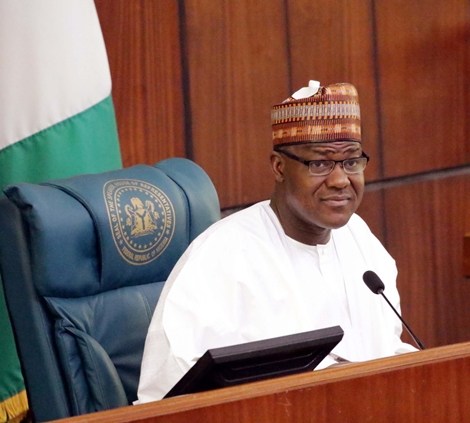The Muslim Rights Concern, MURIC, in a statement have spoken out against comments made by the speaker of the house of representatives, Yakubu Dogara in which he spoke against the Judiciary’s attempt to muzzle the legislation.
While MURIC wants justice for Law Student, Amasa Firdaus, it wanted to distance itself from the situation in which Amasa’s situation and the issue of electoral sequencing were made to look the same.
The statement, penned by Professor Ishaq Akintola said; The speaker of the House of Representatives, Honourable Yakubu Dogara, on Thursday, 22nd March, 2018 warned the Nigerian judiciary against gagging parliament. The speaker complained that the judiciary was encroaching on the powers of the legislature by granting injunctions stopping the public hearing on call to bar of Amasa Firdaus and the bill on change of election sequence.
The Muslim Rights Concern (MURIC) perceives an attempt to hoodwink both the judiciary and members of the public by lumping the hijab case with that of change in election sequence. We contend that the two are separate, distinct and incomparable. We are constrained to put the records straight.
In the first place, the bill on change of election sequence was midwifed by the lawmakers to settle scores with the executive. The contents of the bill also showed that the lawmakers have vested interest as it made election to parliament the first segment thereby giving themselves greatest priority. It was parochial, self-serving and unpatriotic. Empowered by its locus standi, the executive took the right step by going to court on the matter.
On the contrary, those who sought to sabotage the public hearing in the case of the call to bar saga of Amasa Firdaus are people who are bent on keeping the truth away from the public. These are people who know that it was wrong to have barred the hijab-wearing lady from call to bar and they also know that the lady would carry the day unless the Nigerian public was gagged.
While we commend the House Committee on Judiciary and Justice for comporting itself decently during the failed public hearing, the Committee disappointed Nigerians by succumbing to the injunction. The Committee allowed Nigerians to be gagged even when it could have leveraged on the immunity granted the House by law from interference from outside in its deliberations. We stand to be corrected but we cannot recollect any public hearing held in respect of the change in the sequence of elections. The House simply gave accelerated hearing to the change in electoral sequence bill.
How can the speaker complain today when the House veered from its normal course to venture into a sphere of electoral process that is specifically reserved by law for the Independent National Electoral Commission (INEC)? How can INEC be truly independent if the legislature is allowed to tamper with its functions?
As far as the Nigerian public is concerned, the House is baring its fangs at the wrong time after failing to protect a lone, vulnerable girl-child. The honourable speaker should leave the judiciary alone, stop playing politics with the call to bar issue and do the needful. The House must take a stand on the call to bar saga and take a principled stand. That stand is as clear as daylight. Amasa Firdaus must be called to bar.
In our concluding remarks, we aver that there is no basis for lumping the call to bar case together with the issue of change of electoral sequence. One is a moral issue, the other a political matter. One is altruistic, the other self-serving. One is chivalrous, the other vengeful.




 Premier League
Premier League